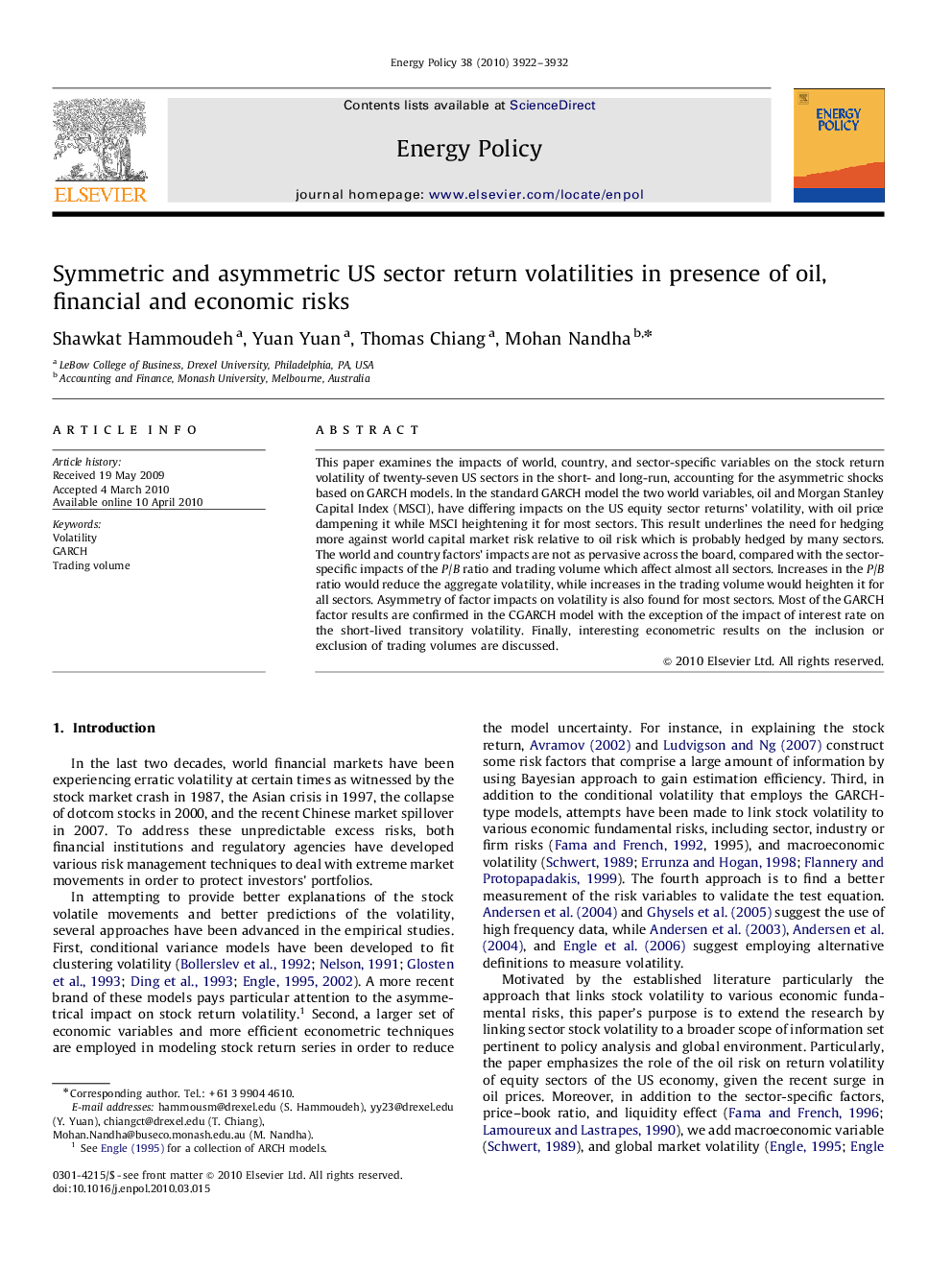| Article ID | Journal | Published Year | Pages | File Type |
|---|---|---|---|---|
| 996084 | Energy Policy | 2010 | 11 Pages |
This paper examines the impacts of world, country, and sector-specific variables on the stock return volatility of twenty-seven US sectors in the short- and long-run, accounting for the asymmetric shocks based on GARCH models. In the standard GARCH model the two world variables, oil and Morgan Stanley Capital Index (MSCI), have differing impacts on the US equity sector returns’ volatility, with oil price dampening it while MSCI heightening it for most sectors. This result underlines the need for hedging more against world capital market risk relative to oil risk which is probably hedged by many sectors. The world and country factors’ impacts are not as pervasive across the board, compared with the sector-specific impacts of the P/B ratio and trading volume which affect almost all sectors. Increases in the P/B ratio would reduce the aggregate volatility, while increases in the trading volume would heighten it for all sectors. Asymmetry of factor impacts on volatility is also found for most sectors. Most of the GARCH factor results are confirmed in the CGARCH model with the exception of the impact of interest rate on the short-lived transitory volatility. Finally, interesting econometric results on the inclusion or exclusion of trading volumes are discussed.
